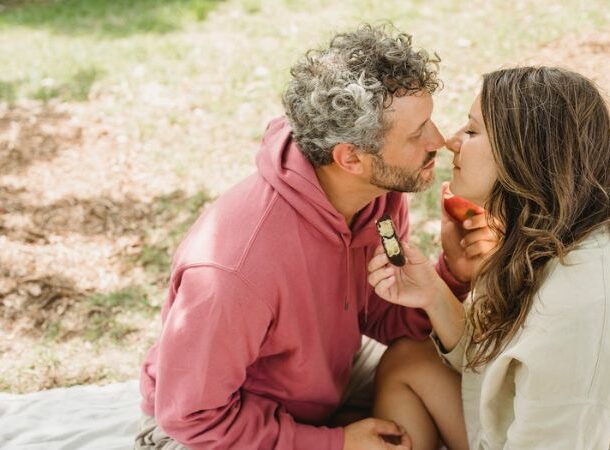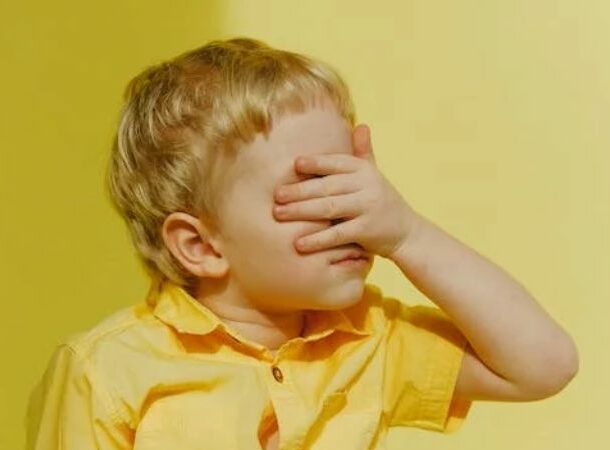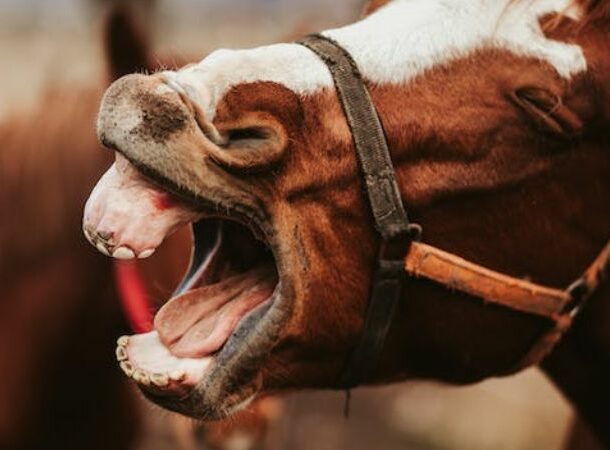The expression “beat around the bush” comes from a time when hunters used to employ someone to hit trees with a stick. Sounds strange, doesn’t it? Or did you know that “letting the cat out of the bag” originates from a medieval scam? Unsuspecting customers would open their shopping expecting to find some chickens and have the shock of their lives. When you stop to think, some everyday phrases make a lot of sense. From a ‘wild goose chase’ to ‘crocodile tears’, these expressions have surprising origins, some that go back thousands of years.
So, here are 25 fascinating backstories of common expressions.

Bury the hatchet

If you are a forgiving person, you might have “buried the hatchet” before. The expression is used to mean resolving an argument or making peace. When Europeans first arrived in North America, they picked up the saying from Native Americans. Many tribes would bury their weapons to celebrate a time of peace. It symbolized avoiding violence and was a sign of trust between different groups.
Getting the sack

This sounds like an odd expression. And that’s because ‘getting the sack’ goes back hundreds of years, long before we were working in offices or on computers. During the Industrial Revolution, manual laborers would carry around a sack full of tools for their work. If the boss didn’t want you around anymore, they would give you ‘the sack’ — meaning it’s time to pick up your things and leave. These days, it’s more like ‘getting the email.’
Stealing someone's thunder

Where on earth could “stealing someone’s thunder” come from? An 18th-century playwright developed a new way of simulating the sound of thunder for his production. Unfortunately, it wasn’t enough to save his failing career. His technique, however, was picked up by the production company staging Macbeth. The creator of the method was outraged. He said that if it wasn’t enough for them to reject him, but then they “stole his thunder”!
Break a leg

“Just like the thunder, “breaking a leg” comes from the theater. Actors have a lot of pressure in the build-up to a production. Just like sports stars, they became superstitious about their performances and didn’t want to jinx each other. So, instead of saying “good luck”, they began saying the opposite. There are plenty of other superstitions, like not saying “Macbeth” or whistling in a theater, but “break a leg” was the one that made it to the outside world.
Last-ditch effort

In the military world, comrade and a fighting spirit is everything. In an effort to inspire his forces, William of Orange told his fellow Dutchmen to “fight and die in the last ditch” in defense of Holland against the English and the French. William of Orange was able to fend off his enemies and rebuild the army, which is why he is now considered the father of the Netherlands. It’s also why you might see Dutch sports fans wearing orange!
Beat around the bush

You know when somebody is talking in circles, stretching things, and doing anything to get the point? So, do hunters — well, sort of. That’s where the expression “beat around the bush” comes from. Rich hunters specifically hired a person to beat the foliage, trees, or bush with a stick. Why? To get the birds, rabbits, and boars to run out from hiding. Once the animals emerged, the game was on and the hunters could get back to what they were all there for.
Flotsam and jetsam

Now here’s an expression you don’t hear every day: “flotsam and jetsam.” It comes from the nautical world, meaning things lost at sea. The two words have specific meanings too. ‘Flotsam’ refers to debris from a wreckage floating in the water, like wood. ‘Jestam’ is anything that was thrown overboard deliberately and later finds its way to the shore. Don’t worry though, in everyday speech though, flotsam and jetsam don’t have such meaning. It’s usually used to mean “bits and pieces.”
High jinks

‘High jinks’ means excited, lively behavior — in other words, a whole lot of fun. The origins of the term are just as entertaining. It goes back more than 300 years to a drinking game in Scotland and England. The game was called “high-jinks” and involved throwing a dice before completing some random task. This often ranged from drinking to pranking. As time went on, the term ‘high-jinks’ became linked to the kind of crazy antics in general.
Under the weather

Starting to feel a bit sick? You could say that you are feeling “under the weather.” That’s what sailors would say to describe an illness coming on. Usually, the weather or seasickness was to blame. And to get a bit of rest, sailors would go on the side of the boat below deck. This section is also called the “weather rail.” Before long, the expression was shortened to “under the weather.”
Wild goose chase

This is just one of the thousands of contributions of Shakespeare, in his epic Romeo and Juliet one of the characters refers to a “wild goose chase.” Our modern use of the expression means to take on a task that is pointless. Some have argued that Shakespeare was probably drawing on a kind of horse race where a series of riders would retrace each other’s steps. If that’s right, then the origin comes from a misunderstanding of the game. Either way, it’s unlikely the expression would have caught on like it did if it wasn’t attached to the name Shakespeare.
In the nick of time

Something done right before a deadline is a great feeling. That concept is expressed by “in the nick of time.” This one dates back to at least the 1500s and to a device called a ‘nick-stick.’ This was something used for keeping track of time, keeping score, and even for financial transactions. The stick had small notches, also known as ‘nicks’, to be used as markers. As a ‘nick-stick’ became associated with precision and accuracy, “the nick of time” entered the public consciousness.
Let the cat out of the bag

Firstly, why would a cat be in a bag in the first place? The reason relates to scammers. In the Middle Ages, traders would put animals, like pigs or chickens, into bags after selling them. Think of it like an early version of a shopping bag. Sometimes though, sneaky sellers would replace these animals with a cat at the last moment. Cats were essentially worthless. So, “letting the cat out of the bag” meant realizing you had been swindled. Today, we tend to use it more for revealing a secret rather than being deceived.
Riding shotgun

Did you ever call a “shotgun” as a kid to get rights to the passenger seat? It’s more than just a game. Before automobiles, when people were dragged along by horses in stagecoaches, there were a lot of dangers. Along the road, the coach could be attacked by robbers or animals. To safeguard the passengers, a guard often accompanied the driver at the front. And — you guessed it — they would carry a shotgun.
Til’ the cows come home

The expression “til the cows come home” is from the Scottish Highlands. In that part of the world, cows can graze for months on end before returning back to a farm in the fall. If you ever hear this expression, it normally means a very long time.
Apple of your eye

The first recorded use of this expression is as early as 885 AD. But it’s also used in the Bible and later on, in the work of Shakespeare. In some ways, it simply refers to the pupil of the eye. Across all these sources, it has a similar meaning: something that is cherished and valued more than everything else. Now, it’s usually used in a romantic context.
Pulling one's leg

Ever had a friend who likes to joke with you by telling stories or tricking you? Then you know what it feels like to have your “leg pulled.” This expression has become so widespread, which is why it’s been studied heavily. Unfortunately, there is no clear origin story. One account is a little dark. It refers to when somebody was publicly hanged and ‘pulling their leg’ down would bring an end to it quicker. The other theory relates to how thieves would pull the legs of targets as a distraction before robbing them.
Crocodile tears

Forget Shakespeare and the Middle Ages, “crocodile tears” go all the way back to the Ancient Egyptians. For people living next to the River Nile, crocodiles were a constant threat. People began to notice that after spending long enough outside the water or after eating, crocodiles seemed to be ‘crying.’ In reality, this is because their eyes need more lubrication. But for Ancient Egyptians, it was a clever way of getting humans to let their guard down before attacking. That’s why the expression “crocodile tears” is used to mean a fake display of emotion.
A sight for sore eyes

This expression is used to mean seeing something or someone is a welcome relief. It can be traced back to the early 18th century when Irish author Jonathan Swift included it in the book ‘Polite Conversation.’ Now, it’s a nice way to compliment somebody.
Absence makes the heart grow fonder

You always want what you can’t have. And nowhere is that more true than in romance. That’s why the proverb “absence makes the heart grow fonder” has become a cliché. It first appeared in the work of a Roman poet named Sextus Aurelius Propertius but in a slightly different form. In that poem, Propertius writes: “Always toward absent lovers love’s tide stronger flows.” It has been repeated in other words over the centuries before in 1844, poet Thomas Haynes Bayly gave us the famous words that we have today: “Absence makes the heart grow fonder.”
Raining cats and dogs

If you aren’t a native English speaker, you might think someone was pulling your leg by saying it’s “raining cats and dogs.” But it’s a pretty common expression to communicate a heavy downpour. One explanation for the expression comes from Norse mythology because the god Odin is responsible for storms and is usually illustrated with wolves. Once again, we find one of the earliest recorded uses in the book by Jonathan Swift. Nobody knows whether he coined the phrase, but ever since then, “raining cats and dogs” has been incredibly popular.
Turn a blind eye

“Turning a blind eye” is pretty self-explanatory, it means to pretend that you don’t see something. The tale of its origin is also straightforward. During the Battle of Copenhagen, the British navy leader Horatio Nelson was ordered to withdraw his forces but didn’t want to obey. So, he looked through the ship’s telescope with his blind eye, telling his officers that he “did not see the signal.” Nelson had lost vision in one of his eyes during the French Revolutionary War and so was literally using his blind eye. The expression had been used before, but Nelson’s story carved it into history and spread it to the public.
Straight from the horse's mouth

As a punter, if you want to bet on horse racing, anything that helps you find the winner is valuable information. That’s where the expression “straight from the horse’s mouth” comes from. It appeared in a newspaper article as early as 1896 that advised punters to ignore what the horse owners say. Another origin could be from the horse trade because smart buyers literally looked inside a horse’s mouth to check their teeth and gum health. These days, the expression is still used in the same way, meaning to get something from the original source.
Bust one's balls

If somebody is harassing or nagging you, they are “busting your balls.” This seems to be an expression that only applies to men, but originally, it wasn’t used for people at all. It refers to how farmers castrate cattle that eventually become steak. When exactly it started to be used for humans is up for debate, but “busting balls” had a spike in popularity from Mafia movies like ‘Goodfellas.’
Bee's knees

This next one might be a little dated now, but once upon a time anything that was cool or trendy was the “bee’s knees.” It was found throughout the 18th century for something that was incredibly small. And the expression didn’t get picked up until the 1920s. At the same time phrases like the “cat’s pajamas’ ‘ and the “snake’s hips’ ‘ became popular, simply because they were nonsensical. One reason that “Bee’s knees” changed into something cool might be the dancer Bee Jackson, who was a popular dancer on Broadway at the time.
Burning ears

When your “ears are burning” it means that somebody might be talking about you at the time. This strange belief comes from the Romans and they even had a different meaning for each ear. The right ear signaled that someone was giving you compliments while the left meant criticism. So, if you ever get a hot feeling in your left ear, it might be time to think about any enemies you’ve made.



























